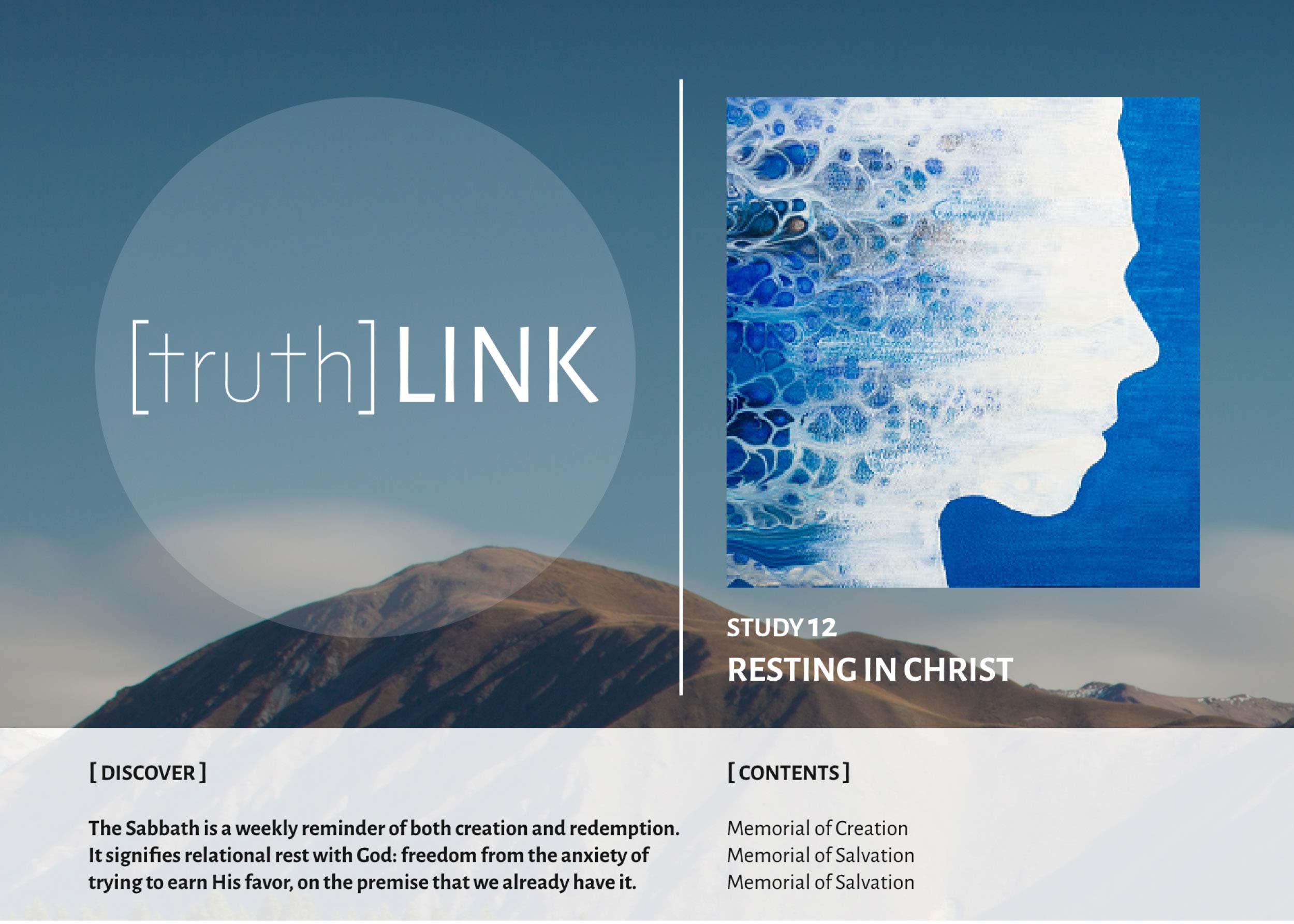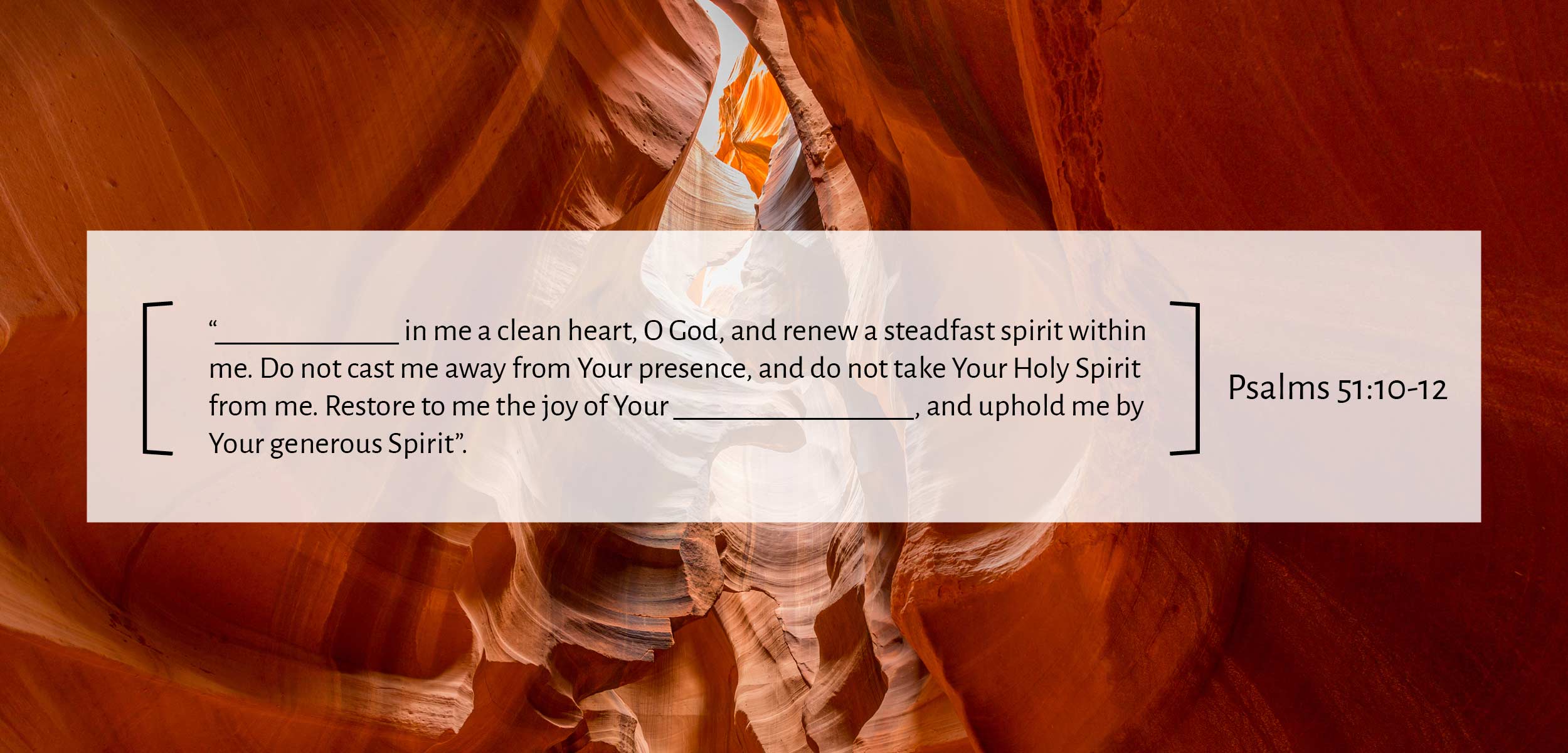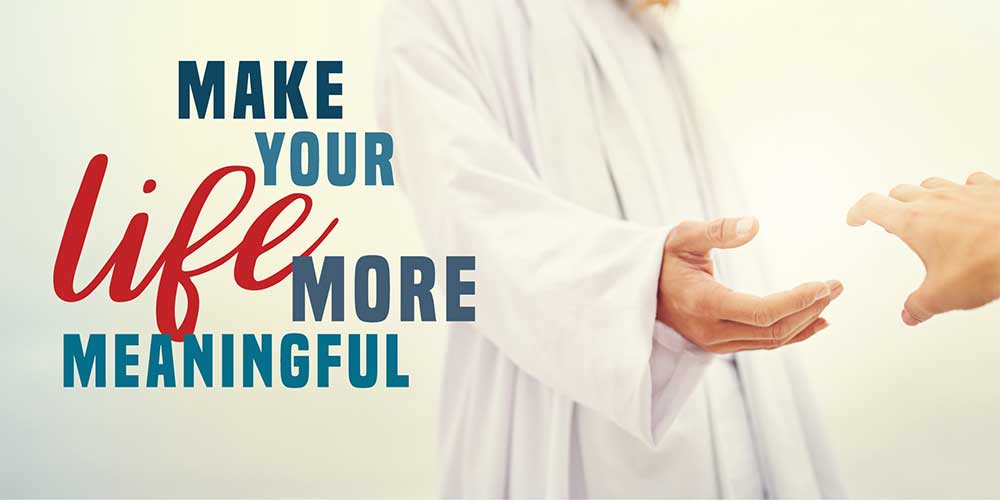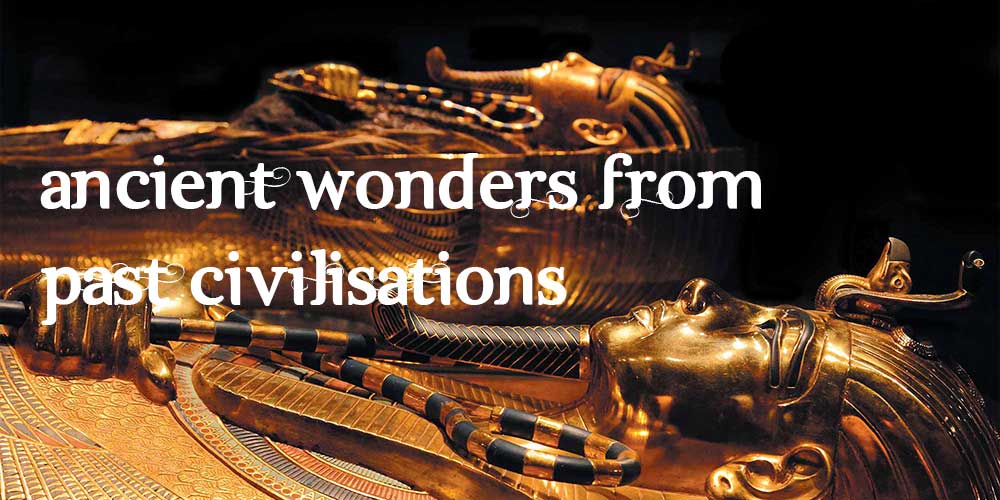
Memorial of Creation
The creation account of Genesis 1 and 2 unfolds beautifully to form a specific literary pattern called a chiasm, which simply means that the story is told in the shape of two corresponding and ascending sides that reach a pinnacle point of focus, like the shape of a mountain or a capital A. Day one corresponds to day four, day two corresponds to day five, day three to day six, with day seven occupying the pinnacle:

Within this simple poetic structure, we see God moving forward in a forming and filling pattern. On the first three days God forms spaces by dividing the material elements of creation. On the next three days God fills those spaces with beautiful things. On day one God forms the heavens and the earth and separates the light from the darkness, and then on day four He fills that space with the sun, the moon and the stars. On day two God forms the spaces of water and sky, and then on day five He fills those spaces with fish and birds. On day three God forms the space of the dry land, and then on day six God fills the land with animals and mankind. Then we come to the entire point of the process of creation: at the pinnacle of the chiasm, on the seventh day God rests from His work and fills it that day with blessing and sanctity:
“Thus the heavens and the earth, and all the host of them, were _________________. And on the seventh day God __________ His work which He had _________, and He __________ on the seventh day from all His work which He had _________. Then God ____________ the seventh day and _______________ it, because in it He ____________ from all His work which God had created and made” (Genesis 2:1-3).
This is not rest in the sense that physical exhaustion has happened, for which sleep would be required, but rest in the sense of satisfaction, for which enjoyment is required. God isn’t tired, He’s happy, pleased, fulfilled. Which is precisely His plan for us—that we would be “blessed,” living life with happiness or enjoyment. The word “sanctified” basically means unique or distinct. And so God gave us the Sabbath as a unique space in time for the mutual enjoyment of fellowship between Himself and us. Some have suggested that the Sabbath is only for the Jews, but in the Genesis account we see that “the Sabbath was made for man” (Mark 2:27) before the Jewish nation existed. It is a sacred space in time for the special engagement of all human beings with their Maker.
Which brings us to another vital feature of the creation story: Human beings were created on the latter half of the sixth day, after all the “work” of creation was already “finished” by God. They did not participate in the work of Creation, nor did they witness God performing the task of creating anything. They awoke to life as objects of grace, recipients by faith of life and all its pleasures as a free gift. That same quality of relationship also holds true for the work of salvation, as we will now discover.
Memorial of Salvation
Read Exodus 20:8-11. Here we discover that the Sabbath is one of God’s Ten Commandments, which means it is eternal and changeless. What is the logic stated for the Sabbath being part of God’s eternal law? Because it identifies who God is and who we are in relation to Him: He is Creator and we are created beings, and, therefore, our position is one of restful dependence on Him. All the work we do is done within the existing parameters of the work He has already done for us by creating us and the material world we live in.
Now compare Deuteronomy 5:12-15. Here we discover that the Ten Commandments are given a second time. However, this time the Sabbath is not given as a memorial of creation, but rather as a memorial of deliverance from slavery, or redemption. Just as creation was achieved by God’s power alone and we are recipients of the gift, so salvation is achieved by God’s power alone and we are recipients of the gift.
The Bible speaks repeatedly of salvation with creation language:

“For by grace you have been ____________ through faith, and that not of yourselves; it is the gift of God, not of works, lest anyone should boast. For we are His workmanship, ____________ in Christ Jesus for good works, which God prepared beforehand that we should walk in them” (Ephesians 2:8-10).
As we turn to John’s Gospel, we see that Jesus employs Sabbath language from Genesis: “I have glorified You on the earth. I have finished the work which You have given Me to do” (John 17:4). Back in Genesis we read about the finished work of creation. Now Jesus is speaking about the finished work of salvation. Then, when Jesus was crucified, He cried out, “It is finished!” (John 19:30). Jesus then died, having “finished” the “work” of redemption. And He died on the latter half of the sixth day, Friday. Then He rested in the tomb on the seventh day, Saturday, and rose to life again on the first day of the week, Sunday (Luke 23:54 through 24:3). By His death on the cross Jesus confirmed that the Sabbath is an eternal memorial of His “finished” “work” of salvation.
We see then that the Sabbath is God’s weekly reminder to us that our salvation is 100% the free gift of His grace, totally His accomplishment and not ours, to be received into our hearts by faith. As such the Sabbath guards us against legalism and self-dependence and secures all our hope and trust in Jesus, who is both our Creator and our Savior. The Sabbath tells us that good works contribute absolutely nothing to our salvation, while at the same time they do reveal God’s mighty creative work in us, which brings forth obedience of the right quality, from the inside out, which brings us to the relationship between the Sabbath and the new covenant.
The Sabbath and the New Covenant
Because the Sabbath is a memorial of salvation by grace through faith in Christ alone, it also signifies the new covenant, which teaches that true obedience to God’s law springs forth from the inside motivated by love. Isaiah 56:1-7 is a prophecy of the coming Messiah, Jesus Christ, and the formation of the New Testament church. Read this prophecy and discuss what it says about New Testament believers, both Jews and non-Jews, regarding the Sabbath. Notice each usage of the words salvation, covenant, Sabbath, and each reference to non-Jewish believers.
Now turn to the New Testament book of Acts. In chapter 13 we read that the apostle Paul came into the city of Antioch, “and went into the synagogue on the _________________ day and sat down” (verse 14). The leaders invited Paul to speak, which he did. After delivering his message, we read these words:
“So when the Jews went out of the synagogue, the ______________ begged that these words might be preached to them the next _______________” (verse 42). Paul agreed to the appointment, and “on the next __________________ almost the whole city came together to hear the word of God” (verse 44).
Just as Isaiah 56 foretold, we see here that New Testament believers, Jews and Gentiles alike, were Sabbath keepers. This makes total sense in light of the fact that the Sabbath is a memorial of both the finished work of creation and the finished work of salvation.
And yet there is a terrible, unbiblical misconception that has been popularized in Christianity. It is said that Jesus and His apostles abolished the Sabbath and put Sunday observance in its place, and that Sabbath keeping is legalism. But as we’ve just discovered, the exact opposite is the case. First, the Sabbath cannot change, for it was established at creation for all mankind is a part of God’s very law of love. Secondly, the Sabbath, which began as a memorial of God’s creative power, is also a memorial of God’s saving power and, therefore, the very antithesis of legalism by virtue of what it commemorates. The truth is, there is not a single statement in the Bible that institutes Sunday worship in place of God’s Sabbath. Why, then do so many churches disregard the Sabbath and keep Sunday? History offers only one answer: Sunday observance was imported into Christian practice by Catholicism from Pagan sun worship cults of the Roman Empire.
[CONNECT]
It is the natural inclination of fallen human beings to put our trust in ourselves and labor under the anxiety of trying to earn God’s favor. Jesus invites us to a radically different spiritual experience.
“Come to Me, all you who labor and are heavy laden, and I will give you rest. Take My yoke upon you and learn from Me, for I am gentle and lowly in heart, and you will find rest for your souls. For My yoke is easy and My burden is light” (Matthew 11:28-30). The labor Jesus is referring to here is not physical work, but rather psychological and emotional work under the burden of feeling we must labor to earn salvation. We know this is His point because He offers “rest” for our “souls” (psyche in the Greek), not for our bodies. This is the deeper rest that we really need, the rest of knowing that God loves us and saves us by His grace because of the good God that He is, not because we have done sufficient work to make ourselves worthy of His love. Entering into the restfulness of His grace then, in turn, arouses us, energizes us, motivates with the pure and powerful motive of love as the only genuine grounds for obedience.
[EXPERIENCE]
I choose to keep the Sabbath day holy as a memorial of the finished work of creation and the finished work of salvation.
Jesus said, “The Sabbath was made for man, and not man for the Sabbath. Therefore, the Son of Man is also Lord of the Sabbath” (Mark 2:27-28). The Sabbath is the Lord’s day. It belongs to Him, and I belong to Him, redeemed by His grace, in which I rest through faith. I praise God that He made the Sabbath for mankind, which includes me, as a weekly reminder of my utter dependence on Him for salvation.
Phone 1300 300 389























